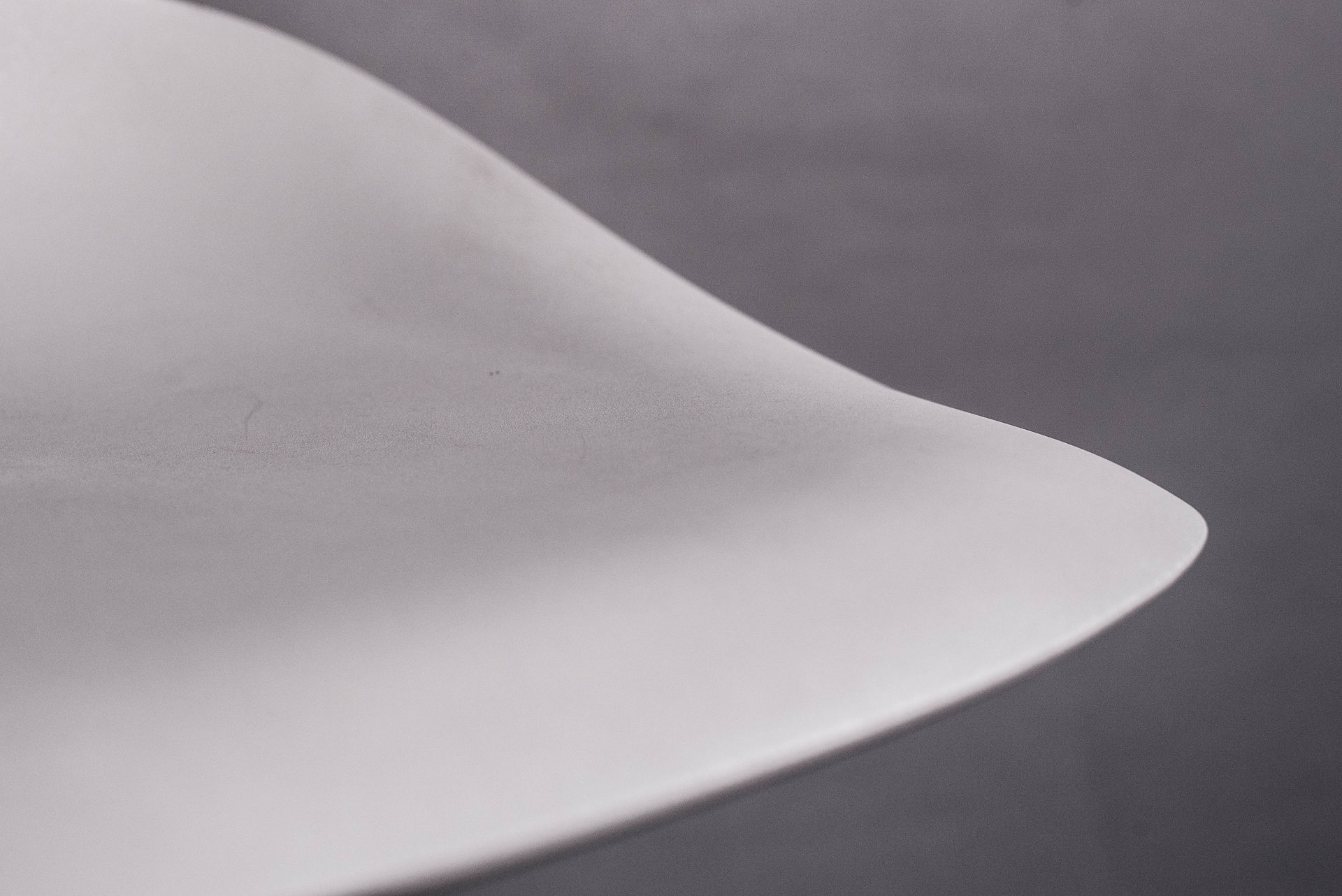
Project Framework

Questions
1) การศึกษาในภาควิชาดนตรีศึกษานั้นเปลี่ยนตัวตนของนักศึกษาไปอย่างไร
2) ผู้ประกอบวิชาชีพเกี่ยวกับดนตรีทำอย่างไรในการรักษาความหลงไหลของตัวเองไว้ในการทำงาน
3) หลังจากจบการศึกษาในสาขาวิชาดนตรีศึกษาและประกอบอาชีพเกี่ยวกับดนตรี ควรจะเตรียมตัวอย่างไร
1) How does studying in the Department of Music change the identity of students?
2) How do musicians and music related career maintain their passion for their work?
3) After graduating in music education and pursuing a career in music, how should I prepare for my future careers?
Blackground Study
มนุษย์ทุกๆ คนนั้นมีสิ่งที่คอยขับเคลื่อนในการสร้างสรรค์ผลงานที่แตกต่างกัน ซึ่งสิ่งเหล่านั้นสร้างความเป็นปัจเจกให้กับผู้ที่สร้างสรรค์ผลงาน
และตัวผลงานเอง ซึ่งเราซึ่งเป็นผู้แสดงผลงานเหล่านั้น ก็ได้นำความเป็นปัจเจกของงานออกมาเผยแพร่สู่ผู้เสพผลงานผ่านประสาทสัมผัสต่างๆ ด้วยเช่นกัน แต่อย่างไรก็ตาม สิ่งที่เราในฐานะผู้ที่นำผลงานของผู้สร้างสรรค์ผลงานมาเผยแพร่ให้คนอื่นในรูปแบบของเสียงที่บรรเลงออกมา ทำให้ความเข้าใจปัจเจกของแต่ละสิ่งที่เรากำลังเผยแพร่ในเบื้องต้นจึงมีความสำคัญ โดยที่สิ่งเหล่านี้ ทุกๆ สถาบันที่สอนเกี่ยวกับดนตรีศึกษาก็มีสอนไว้เบื้องต้น ซึ่งเราในฐานะผู้แสดงก็นำปัจเจกเหล่านั้นมาเสนอในแง่มุมต่างๆ
แต่การแสดงดนตรีหนึ่งครั้งนั้นไม่ได้เป็นแค่ปัจเจกของผู้ที่สร้างสรรค์ชุดของเสียงที่เรานำมาบรรเลง แต่เป็นความคิดของเราและความหลงไหล
ของเราต่อสิ่งที่เราบรรเลงด้วย ซึ่งรวมตัวกันเป็นปัจเจกของตัวเรา ที่ได้แสดงออกไปพร้อมกับปัจเจกของผู้สร้างสรรค์ผลงานที่เรานำมาใช้แสดง โดยเฉพาะในเรื่องความรู้สึกที่เรามีให้กับการแสดงของเรา สิ่งเหล่านี้สถาบันการศึกษาสอนเราไม่ได้ แต่เป็นสิ่งที่เกิดขึ้นกับตัวเราเอง ซึ่งมันอยู่กับเราตลอดตั้งแต่เรายังเด็ก แต่เพราะเหตุใดสิ่งเหล่านี้ถึงค่อยๆ สำคัญน้อยลงเรื่อยๆ ในเวลาที่เราได้รับการศึกษาและมี Academic skill มากขึ้น
การศึกษานี้จึงมีการให้ผู้ที่กำลังศึกษาในสาขาวิชาดนตรีศึกษาได้บอกเล่าเรื่องราวของตน เผยแพร่ประสบการณ์ในการเรียนว่าเปลี่ยนตัวเองไป
อย่างไรบ้าง และมีการเสวนากับผู้ที่ประกอบอาชีพทางด้านดนตรีเกี่ยวกับการเตรียมตัวรับมือกับการทำงานในอนาคตในขณะที่ยังคงรักษาความความหลงไหลในการสร้างสรรค์ผลงานในรูปแบบของเรา ซึ่งผู้ศึกษาก็ได้หวังไว้ว่า การศึกษานี้จะทำให้ผู้ศึกษาหรือผู้ที่มาชมผลงานของผู้ศึกษาจะได้ย้ำเตือนตัวเอง ว่าในที่สุดแล้ว เราคือใคร และเราเล่นดนตรีเพราะเหตุใด
Every human being has a different creative drive. Those things create individuality for those who create them.
And the works themselves, we, the ones who present those works, also bring the individuality of the work to the creator through the senses. Therefore, it is important to understand the individuality of each of the things we are publishing initially. All of music institution already taught us. and we interpet it further as performers.
But one musical performance is not just about the individuals who create the set of sounds we play. But it's our thoughts and our passion.
We are represented by the individuals we perform, with the individuals of the creators we use to perform, especially in regards to the feelings we have for our performances. These things cannot be taught by academia, but what happens to ourselves, which has been with us since we were young, but why are these things becoming less and less important as we become educated and have more academic skills?
This study allows those who are studying music to tell their stories. Spread the experience of learning as a change of self determination. And
there are discussions with music professionals about preparing for the future while maintaining our passion for creativity. I hope that this study will remind students or visitors of their work that we are ultimately who we are and why we choosing to be a musician in the first place.
Literature Review
การศึกษารูปแบบ, ที่มาของบทเพลงต่างๆ ที่แสดงในคอนเสิร์ตจบปีสี่ และ ค้นหาข้อมูลเพิ่มเติมเกี่ยวกับผู้ประพันธ์เพลง อย่างเช่น แนวคิดวิธี
ประพันธ์เพลง ได้แก่ เทคนิค Metric Modulation ของ Eliott Carter ซึ่งเขาได้นำไปใช้ต่อในบทเพลง String Quartet ของเขาเอง หรือสิ่งที่เป็นที่มาของบทเพลง อย่างเช่น บทเพลง Libertango ของ Astor Piazolla ซึ่ง Alexej Gerassimez ได้นำมาใช้ประพันธ์เพลง Piazonore หรือข้อความในหนังสือ Merlin the Poem ซึ่ง Andrew Thomas ได้นำมาใช้ประพันธ์เพลง Merlin
Study the form, origin of the songs performed at the senior percussion recital, and find out more about the composer, such as composition
technique, for example, Eliott Carter's Metric Modulation technique, which he applied to his own String Quartet, or what the song originated from, such as Astor Piazolla's Libertango, which Alexej Gerassimez used to compose Piazonore, or the text of Merlin the Poem, which Andrew Thomas used to compose Merlin.
Interview
การสัมภาษณ์แบ่งเป็นสองส่วน คือ การสัมภาษณ์ผู้ประพันเพลงสำหรับเพลงที่แสดง และการสัมภาษ์นักเรียน นักศึกษา โดยจะสัมภาษณ์
นักเรียนระดับชั้นม.6 และนักศึกษาชั้นปีที่ 1 จำนวน 9 คน นักศึกษาชั้นปีที่ 4 และบัณฑิตจบใหม่ จำนวน 7 คน และผู้ประกอบวิชาชีพทางด้านดนตรี จำนวน 6 คน โดยคำถามจะแบ่งเป็น 1) คำถามสำหรับความฝันในวัยเด็กและสาเหตุที่เลือกศึกษาต่อในสาขาวิชาดนตรีศึกษา 2) ความเปลี่ยนแปลงของตัวตนและความหลงไหลของผู้ให้สัมภาษณ์ 3) สิ่งที่ต้องเตรียมตัวสำหรับการประกอบวิชาชีพสาขาดนตรีในอนาคต
The interview is divided into two parts consist of interviews with music composers for songs performed and music stedent . The interview consist
of three groups, first group consist of 9 high school student and freshman, second group consist of 7 senior or fresh graduated people,Last group consist of 6 musicians and people with music related careers. The questions consist 1) The childhood dreams and reasons to chose to study music, 2) changes in the identity and passion of the interviewees, and 3) what to prepare for the future musical careers.
Bibliography
Alexej Gerassimez ""Piazonore" by Alexej Gerassimez" (video). posted 5 December
2015. https://www.youtube.com/watch?v=OPX_tbsOBQw Attended in 15 December 2020
Benjamin Charles. “Merlin” (video). posted 4 April 2009.
https://www.youtube.com/watch?v=KDfvrl-V_J0. Attended in 15 December 2020
Biography. www. elliottcarter.com. Attended in 15 December 2020
Description of Piazonore by the composer. 2020.
https://www.editionsvitzer.com/catalog/piazonore/c-23/p-292. Attended in 16 December 2020
Kasey Blezinger. Piazonore by Alexei Gerassimez Deatail. 2020.
https://www.lonestarpercussion.com/Sheet-Music-Books/Percussion-Piano-Duets/Percussion-Piano-Duet-Piazonore-by-Alexej-Gerassimez-Edition-Svitzer.html. Attended in 16 December 2020
Don Richard Cox. 1974. The Vision of Robinson's Merlin. Digital commons.
Colby Library Quarterly. https://digitalcommons.colby.edu/cgi/viewcontent.cgi?article=2165&context=cq. Attended in 15 December 2020
Graham Wade. 2011. Booklet of Piazzolla for Violin, Brass and Percussion by
Quintetto di Ottoni, Andrea Tacchi and Percussioni della Toscana. NAXOS. https://cdn.naxosmusiclibrary.com/sharedfiles/booklets/NAC/booklet-8.572611.pdf. Attended in 17 December 2020
James W. Vilseck. 2017. Scholarly Program Notes for Graduate Percussion
Recital: Javier Alvarez 's Temazcal, Andrew Thomas's Merlin, David Lang's Anvil Chorus, Toshio Ichiyanagi's Rhythm Gradation, Kevin Put's And Legions Will Rise, and Ben Wahlund's Hard Boiled Capitalism and the Day Mr. Friedman Noticed Google is a Verb. Southern Illinois. Southern Illinois University
Marcus Löfdahl. 2012. Approching Piazzolla's Music Analysis and
composition in interaction. University of Gothenburg.
https://gupea.ub.gu.se/bitstream/2077/29378/1/gupea_2077_29378_1.pdf. Attended in 16 December 2020
Matthew Dean Altmire. 2013. Time Travel: Musical Metrics in Elliott
Carter’s Eight Pieces for Four Timpani. Los Angeles. University of California. https://www.pas.org/docs/default-source/thesisdissertations/altmire_matthewdeand2f1bc6de1726e19ba7fff00008669d1.pdf.https://gupea.ub.gu.se/bitstream/2077/29378/1/gupea_2077_29378_1.pdf
Michael Burritt. 2020. Interview
Michael Burritt. https://www.esm.rochester.edu/faculty/burritt_michael/.
Attended in 16 December 2020
Nathan Daughtrey. 2012. Something Old, Something New… An Interview
with Michael Burritt. Percussive Notes. (September 2012): 66-67. https://static1.squarespace.com/static/51606b9ee4b01df404d29c57/t/52dc95ace4b00bfdc05807bc/1390187948994/2012-09+An+Interview+with+Michael+Burritt.pdf. Attended in 16 December 2020
Russian Philharmonic - Moscow City Symphony. "A. Piazzolla. Libertango".
posted 28 July 2012. https://www.youtube.com/watch?v=kdhTodxH7Gw. Attended in 16 December 2020
Rüdiger Ludwig. Booklet of Ástor Piazzolla Tango! Isabelle van Keulen
Ensemble. NAXOS. https://cdn.naxosmusiclibrary.com/sharedfiles/booklets/CCS/booklet-CC72610.pdf. Attended in 16 December 2020
Seokjung Park 박석정. "Elliot Carter : V. Improvisation (timpani solo) - Seokjung
Park 박석정 팀파니"(Video) posted 3 October 2020.
https://www.youtube.com/watch?v=l9Z-Ai-OARE. Adtended in 20 May 2021
Stanley Sadie.1910 .The New Grove Dictionary of Music and Musicians. Second
Edition. New York. Oxford University Press.
Stuart Marrs. "Stuart Marrs performs Improvisation by Elliott Carter with artist
commentary in English"(Video). posted 18 June 2017. https://www.youtube.com/watch?v=ceF07YJQ1DE. Attended in 15 December 2020
Tegan LeBrun. 2014. Elliott Carter and his use of metric and temporal modulaton
in his Eight Pieces for Four Timpani : an examination into the application of click tracks during the preparation and performance of these works. Edith Cowan University. https://ro.ecu.edu.au/cgi/viewcontent.cgi?article=1112&context=theses_hons. Attended in 15 December 2020


